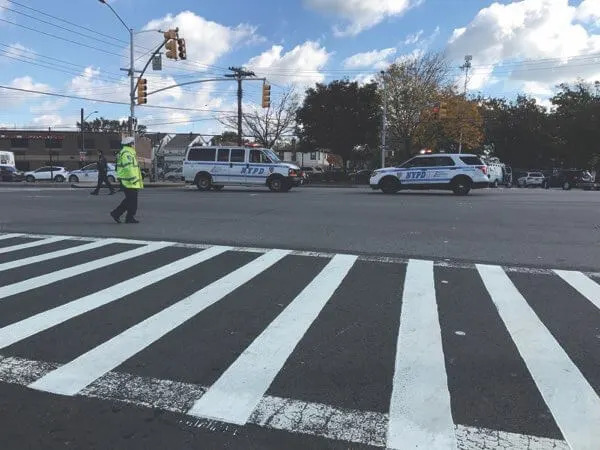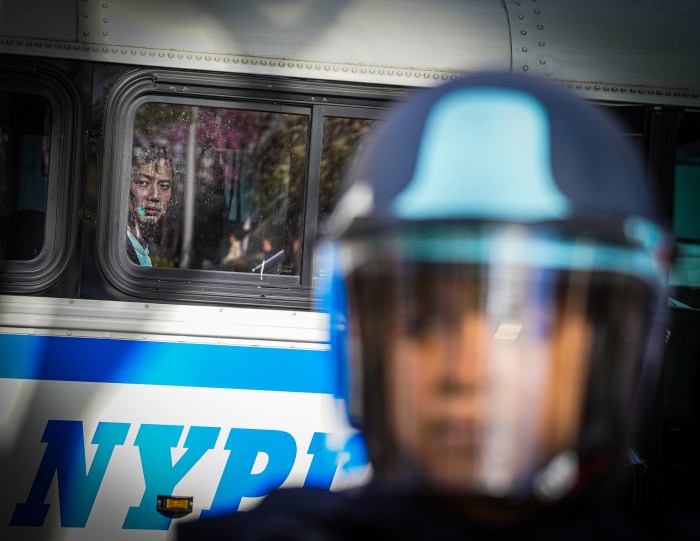By Bob Harris
This year there were several green events in Grand Central Terminal and on Vanderbilt Avenue north of 42nd Street in Manhattan. I spent an hour walking along Vanderbilt Avenue looking at the exhibits lining both sides of the street. We all have to think of conservation because what humanity is doing to Earth is disturbing. While some exhibits were selling products, all were interesting.
Some interesting groups present were Bike New York, the Catskill Animal Sanctuary, Clean Air NY, Con Edison, the city Sanitation Department's Waste Prevention Bureau, Conserve Our Ocean Legacy, Earth Day New York, the Environmental Defense Fund, the Lower East Side Ecology Center, the National Outdoor Leadership School, New York City Audubon, the city Department of Environmental Protection, the state Public Service Commission, the Rainforest Action Network, the Rainforest Alliance, Recycle-A-Bicycle, RePlayGround, Riverkeeper, Save the Chimps, the Southern Bronx River Watershed Alliance, the Metropolitan Transportation Authority and the New York City & Lower Hudson Valley Clean Communities.
A group promoting ethanol had a card which told of ways to be green. It read “use ethanol but the closest ethanol station is in Albany, NY, recycle, replace light bulbs with compact florescent light bulbs, take reusable lunch bags to school and cloth bags to the supermarket, and use recyclable water bottles instead of plastic bottles.”
The “Clean Air New York Travel Choice Guide” gave ideas such as car pooling, using public transportation, biking or walking, keeping your car tuned up and tires properly inflated, not idling your car, staying indoors and limiting driving on poor air quality days, refueling your car after dark, not using gas powered mowers and finding a different way to get to work instead of driving.
The booklet “Healthy Homes: Keeping Homes Healthy & Safe for Children” had helpful information, such as check the paint in old homes for lead, chemicals, roaches, mice and mites; paint dust can cause asthma in young children; repairs in older buildings can stir up lead dust; have bathroom ventilation to control moisture; wash bedding in hot water weekly to minimize dust and dust mites; store food in sealed containers to minimize bug growth; store chemicals in locked cabinets out of children's reach; avoid using chemical sprays; make sure furnaces and heaters are vented properly; install smoke detectors and change batteries every spring and fall; and do not buy mercury-containing products like thermometers.
MillionTrees NYC wants to plant 1 million trees by 2030. If you want a tree planted, call 311 or Community Board 8 at 718-264-7895. Trees shield your house and reduce energy costs, remove pollutants from the air and water, lower summer temperatures, reduce storm water runoff, attract customers to business districts, slow global warming and look pretty and relaxing. During hot summer days when there is no rain, water new trees at least once a week, loosen the soil around roots carefully and keep animal wastes and chemicals away.
City Councilmen David Weprin (D-Hollis) and James Gennaro (D-Fresh Meadows) are pushing a biofuel bill. U.S. Rep. Gary Ackerman (D-Bayside) is introducing bills to require cars used by the federal government to have a millage standard of 40 miles per gallon and require all states to have bottle deposit laws.
U.S. Rep. Anthony Weiner (D-Forest Hills) has a plan to save Jamaica Bay's ecosystem, since 70 percent of the marshland has been lost over the last 50 years. An advisory committee wants the four local city sewage plants to lighten their discharges, reintroduce oysters which clean the water and create more awareness of Jamaica Bay to city residents.
GOOD NEWS OF THE WEEK: More and more wind farms are being built, there is a small water turbine energy producing project on the East River and the city Department of Transportation has more than 30 public plaza projects in the works. In Philadelphia, owners get tax breaks for installing roof gardens plus has single-stream recycling so all recyclables go out together, which could boost recycling rates.
BAD NEWS OF THE WEEK: SUVs are still considered cars and not trucks and have terrible gas millage. There are no biofuel stations in the city, the federal government has not increased the fuel requirements of cars enough (so we are wasting gasoline) and there is not enough research on alternate energy sources.






























